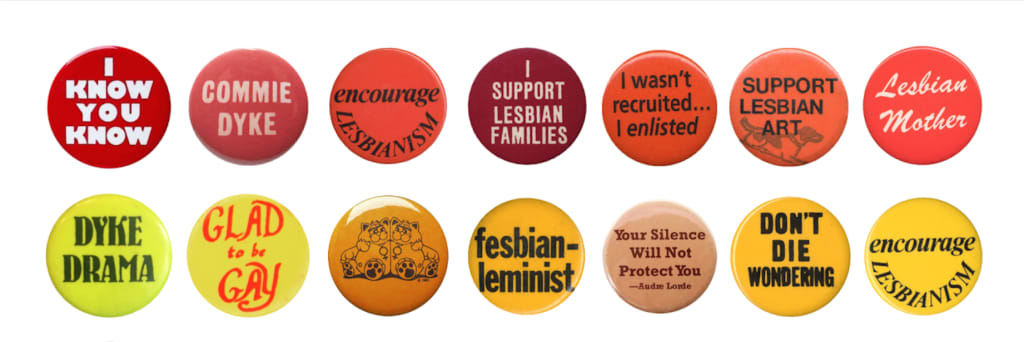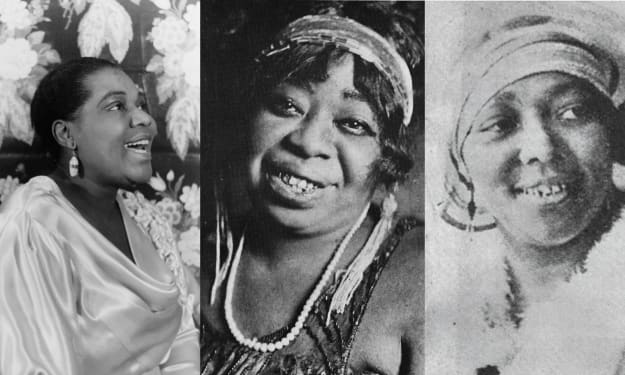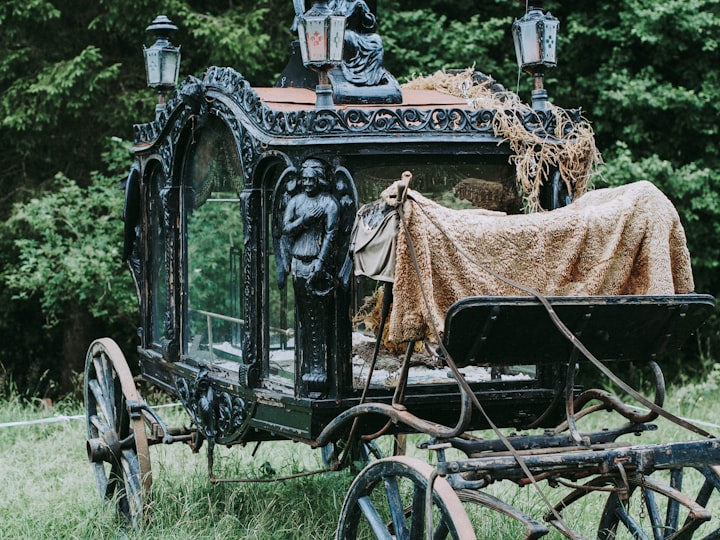#RiseInPride: Intersectionality Isn't Optional
A letter of love to my community from a passionate lesbian

Over the years, my understanding of pride has expanded dramatically. Learning and embracing the history of my community has allowed me to further explore and understand my own identity. Lesbianism is sacred, and our identities are complex and diverse.
Lesbianism is more than just a sexual orientation, and for many people, the term encompasses the various intersections of several of their identities, allowing the term to be a multifaceted identifier. Because our community is large, many of our lived experiences may overlap to some extent. However, when we examine the lesbian identity through an intersectional lens, it becomes clear that marginalizations such as disability, gender, and race wield significant power in not only how the world perceives us, but also how we perceive the world.
When I speak about my experiences, I use the word community broadly but regularly because it can refer to the entire LGBTQ+ community or to specific sub-communities like lesbianism.
The best piece of queer advice I've ever received isn't a single quote or statement, but rather an ideology that I'll try to summarize briefly. Prioritizing the decolonization of LGBTQ+ spaces and refusing to be palatable is a more direct path to our liberation than assimilation ever could be. As someone who lives at the crossroads of several marginalizations, I am increasingly aware that respectability entails existing within the parameters established by settler colonial systems. Furthermore, comprehending what this entails has empowered me to dissect how I have been impacted, begin comprehending the harm it has caused my communities, and implement generational healing into my journey of self-discovery.
Decolonization alters how you take up space in the world because it is a choice of empathy, solidarity, and unlearning that frequently initiates healing within ourselves and for our loved ones. Furthermore, making an active choice encourages introspection, which allows us to better understand our identities and the truth. Freedom and safety are our birthrights, and showing ourselves and others love and respect is an important part of pride.
Inner child work, a psychotherapeutic concept that acknowledges our childhood emotions and experiences while reclaiming our deserved happiness, innocence, and self-assurance, is something I frequently do. I was always aware of my queerness as a child, but I lacked the words to express it, resulting in a decade-long internal monologue. As a teenager, I began openly identifying as a lesbian and immersing myself in online community spaces. For context, as a child, I saw almost no representation of lesbians, let alone Black and/or Latina lesbians, which is unfortunate because it would have provided me with guidance and reassurance. If I could talk to my younger self, I would tell her that her feelings of isolation are not permanent, and that her longing for romantic and platonic love, which feels unattainable, is both attainable and well deserved.
In the near future, I hope to see genuine concern for community members' livelihoods, as well as sincere advocacy. This compassionate, community-oriented advocacy takes many forms and not only necessitates, but also merits, direct action.
Trans women and femmes, in particular, require emotional and physical protection, as well as financial support for their livelihoods. We need genuine media representation that reflects our community's diversity, including the decentering of whiteness, rather than the tokenization that we frequently see, especially during Pride Month. Furthermore, we commonly see spaces that are inaccessible to people with disabilities, necessitating the use of interpreters, wheelchair access, and any other accommodations that ensure equal opportunity and enjoyment in spaces and at events.
When I think about lesbian history, I remember the Lesbian Avengers, a group founded in 1992 “as a direct action group focused on issues vital to lesbian survival and visibility.” They took to the streets, demanding authentic lesbian identity recognition, media attention, and political change.
Overall, the discussion of intersectionality (a term coined by Professor Kimberlé Williams Crenshaw in 1989 to address Black women's oppression) should be met with direct action. I suggest contacting your local representatives, donating to community members through direct or mutual aid, reaching out to community organizers in your area, and supporting LGBTQ+ owned businesses (and any other endeavors) not just in June, but throughout the year.
The constant reminder that the first pride was a riot - referring to the Stonewall Riots - circulates spaces on and offline throughout pride month; fully grasping this is essential for community liberation and solidarity. Our ability to show up for one another in difficult times is extraordinary. Throughout the decades, we have stood by one another in times of crisis, demonstrating our compassion and resilience. Despite our admirable qualities, we deserve to be surrounded by love, opportunity, and security rather than hardship and survival.
About the Creator
Gabriella Pomales
Artist, curator, and writer
I'm passionate about accessible education, community connection through sharing lived experiences, and holding conversations through an intersectional lens.
Instagram: gabriellaanalise
gabriellaanalise.carrd.co







Comments
There are no comments for this story
Be the first to respond and start the conversation.